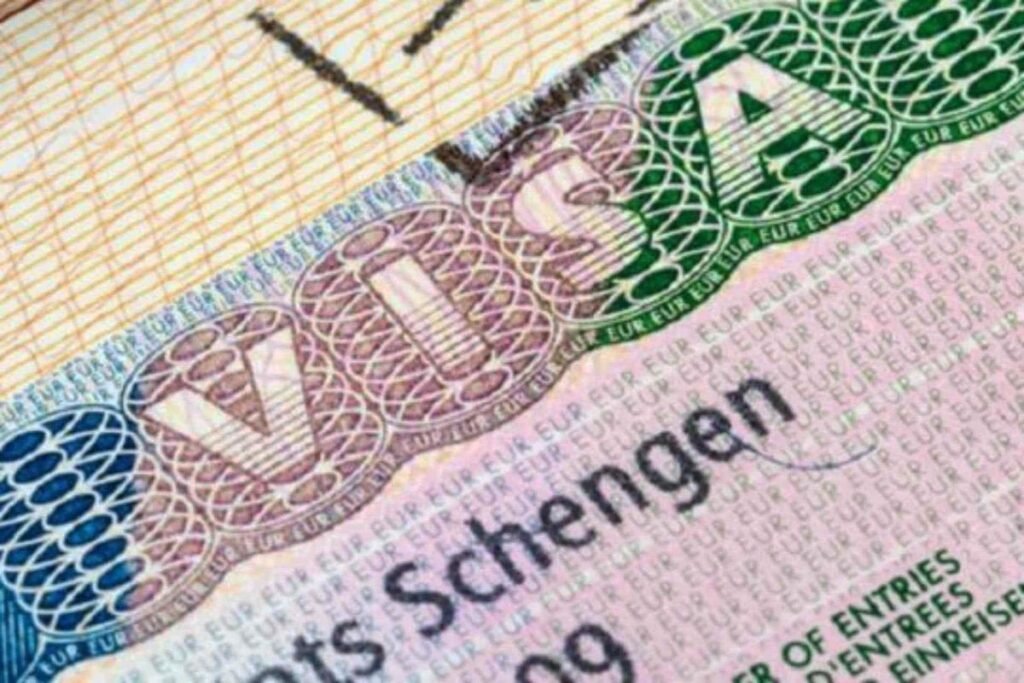UAE Travellers Face a Fresh Schengen Rule – But It’s Manageable
Planning a trip to Europe from the UAE just got a little more complicated – but not necessarily in a bad way. A recent change in the Schengen visa process is now being rolled out, and UAE residents looking forward to strolling through Parisian boulevards or enjoying Tuscan sunsets will want to understand what this new requirement means for them.
While at first glance it may seem like another bureaucratic hurdle, this change could also signal a more structured, secure, and eventually smoother process for those applying to visit Schengen countries. As the world becomes more interconnected and digitalised, countries across Europe are taking steps to modernise how visas are issued. This new step is a reflection of that larger move toward efficiency and enhanced border control.

So What’s Changing?
The big update is this: UAE residents applying for a Schengen visa will now need to provide biometric data as part of their application process.

Biometric data, which includes fingerprints and a digital photograph, will be collected when applying for a short-term visa to enter any of the 29 countries that make up the Schengen Area. This includes top travel destinations like France, Germany, Italy, Spain, the Netherlands, and more.
The process itself is not as daunting as it sounds. Many people are already familiar with biometric scans at airports and immigration counters. For Schengen visas, the fingerprinting will need to be done at a designated visa application centre and is typically a one-time requirement that stays valid for five years.
If you’ve applied for a Schengen visa in the past five years and provided your biometric data during that time, you may be exempt from repeating it. However, first-time applicants or those whose data has expired will need to comply with this updated process.

Why This Change Matters Now
In a world where identity theft and fraud are rising concerns, the move to incorporate biometric data is a practical and increasingly common step. It adds a level of security that traditional paperwork simply can’t guarantee. It helps protect both the traveller and the hosting country.
From the perspective of the Schengen states, this step also helps streamline border security, making it easier to identify travellers, verify their identities, and reduce the chances of duplicate or fake applications. And for travellers, although it may seem like an extra chore, it’s ultimately about smoother travel experiences in the long term.
What UAE Travellers Should Know Before Applying
If you’re preparing for a trip and planning to apply for a Schengen visa soon, here’s what you need to know to avoid any surprises:
- Book your appointment early – With the biometric requirement now in place, appointment slots may fill faster. Plan ahead and make your appointment at the visa application centre in advance of your travel date.
- Bring all your documents – Your passport, completed application form, travel itinerary, proof of accommodation, financial means, and now – your biometric data.
- Biometrics are done once every five years – So you’re not repeating the process for every trip. If your previous biometric data is still valid, you can relax for now.
- Be mindful of kids and elderly travellers – Children under 12 years old and those who are physically unable to provide fingerprints may be exempt. But it’s always best to double-check specific exemptions when booking your appointment.
Is This a Good Thing for Travellers?
The short answer is yes. While change can be inconvenient at first, this move has the potential to simplify repeat visa applications. Once your biometrics are stored, you won’t have to provide them again and again – meaning future applications might be quicker and less cumbersome.
Additionally, the move towards digitisation could open the doors for more seamless future services. Eventually, visa processes may move entirely online, allowing for better transparency, quicker approvals, and easier tracking of applications.
For frequent travellers, this also reduces the chances of inconsistencies or confusion during border checks. With your biometric data linked directly to your visa, identity verification becomes instantaneous and reliable.

How UAE Residents Are Responding
Many UAE residents are seasoned travellers, and the response so far has been mostly accepting. People understand that modern travel requires modern systems. There may be a slight learning curve for those unfamiliar with biometric enrolment, but visa facilitation centres in the UAE are well-equipped to assist applicants through the process.
It’s especially relevant now, as summer holidays are in full swing and many are gearing up to travel. UAE citizens already enjoy visa-free access to many countries, but for those who require a Schengen visa, this step is now a standard part of the journey.
Some travellers who previously experienced delays due to paperwork or inconsistencies in documentation feel this step adds a layer of reliability. Knowing your data is securely stored can give peace of mind during travel.
Preparing for a New Era of Travel
Travel has evolved, and so have its requirements. While it’s easy to view new rules with apprehension, the biometric data requirement is not about creating difficulty – it’s about embracing a more secure and predictable way of handling international visitors.
For the UAE’s large population of expats and citizens who frequently visit Europe for holidays, education, or business, understanding this new process is essential. It’s another step in ensuring safe, well-documented, and efficient travel for everyone involved.
As travel continues to rebound post-pandemic, such measures may soon become the global standard. The UAE has always been forward-thinking when it comes to adapting to international policies, and its residents are likely to navigate this change just as smoothly as they have with others.
Final Thoughts
Change is the only constant – especially when it comes to international travel. The introduction of biometric data for Schengen visa applicants in the UAE is a reflection of global trends in digitisation and security. While it may feel like an added step now, it’s one that simplifies the path ahead.
UAE travellers are known for their adaptability, and this update is just another checkpoint on their journey to the world’s most beloved destinations. With a bit of planning and awareness, your next trip to Europe can still be as effortless, exciting, and enriching as ever.
So pack your bags, book that appointment, and embrace the new way forward. The charm of Europe still awaits – and now, with a little extra security on your side.
Do follow UAE Stories on Instagram
Il Forno Opens in Madinati Mall – and It’s Serving Up 15% Off













